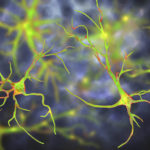During infancy, high levels of bad cholesterol might be associated with an increased risk for psychosocial adversities later in childhood, according to a new study published in the journal Psychological Science.
The study focused on 1,369 children from birth to 5 years of age, from various ethnic backgrounds, with a primary objective of identifying any long-term consequences of infants’ lipid profiles, used to measure cholesterol and triglycerides in the blood.
Among the participants, all of which were born in the United Kingdom from 2007 to 2010, once they’ve reached age 3 were evaluated on health status by their mothers and then by academic instructors when they reached age 4 and 5. For the oldest of the participants, instructors were asked to rate based on their psychological development.
What researchers found was that infants whose cord blood indicated higher levels of high-density lipoprotein were at a higher chance of receiving better ratings on their psychological development assessments, when compared to their counterparts.
For the participants who tested high for triglycerides and very-low density lipoprotein, it indicated high levels of bad cholesterol and thus were more likely to receive contrasting results on social and emotional development, despite ethnicity or gender.
“”If this is replicated in other studies, it would suggest that lipid profiles at birth could play a role in identifying children who might be at heightened risk for psychological problems later, allowing health care providers to intervene early,” said Erika Manczak, the study’s lead researchers.
“It also introduces the possibility that lipids may be a new mechanism to consider when trying to understand what causes mental health problems.”


